Beginning Bright: The Importance of Age-Specific Dental Care
Oral health is a vital component of overall well-being, influencing nutrition, speech, and self-confidence from infancy through senior years. Effective preventive dental care tailored to each life stage lays the foundation for a lifetime of healthy smiles and reduces the risk of painful, costly dental problems. This article explores key dental care practices for children, teenagers, adults, and seniors, highlighting age-appropriate strategies to promote oral health and prevent disease throughout the lifespan.
Early Beginnings: Infant and Childhood Dental Care Essentials
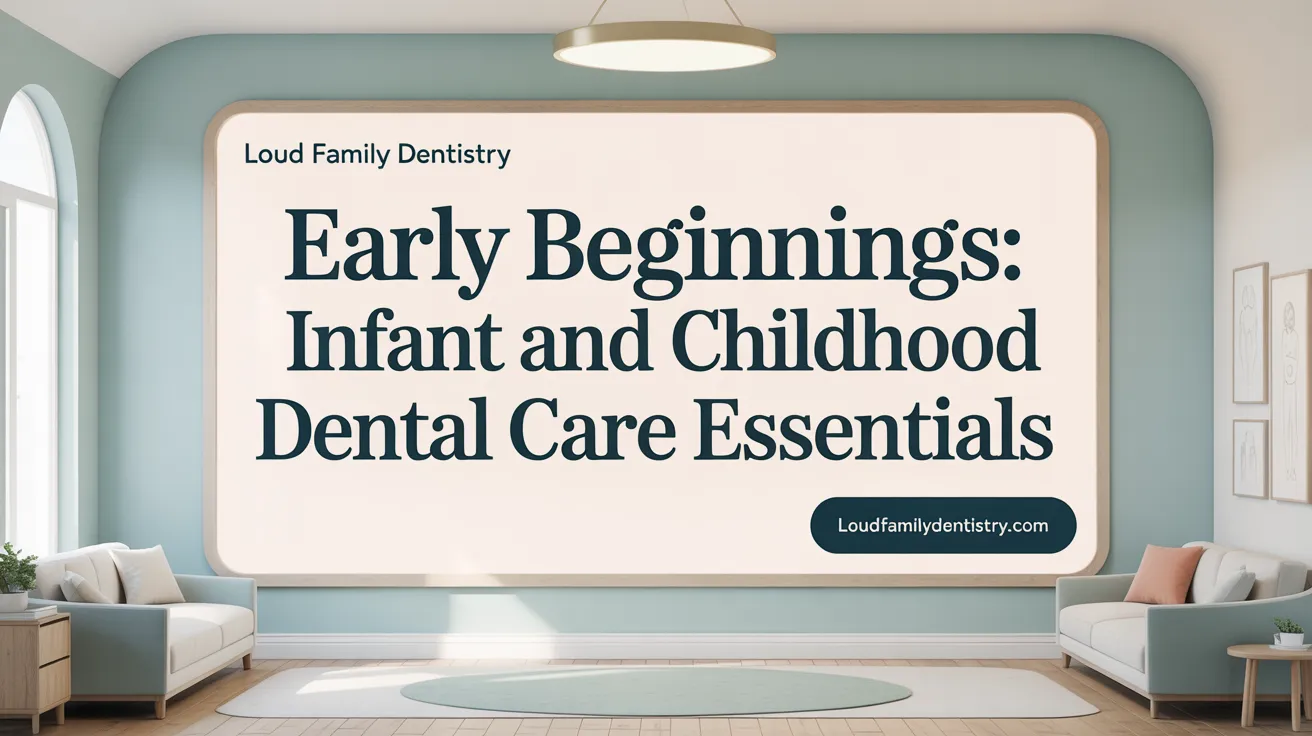
When should a child have their first dental visit?
Children are recommended to have their first dental visit by first birthday or within six months after their first tooth emerges. Early visits allow the dentist to monitor dental development, identify potential issues promptly, and establish a comfortable dental home for the child.
How can parents care for infants' gums before teeth appear?
Before teeth arrive, parents can promote oral health by cleaning baby's gums before first tooth twice daily using a soft, damp cloth. This practice helps remove bacteria from the mouth, fostering good oral hygiene habits early on.
What practices help prevent baby bottle tooth decay?
To safeguard against avoiding bedtime bottles to prevent decay it is important to avoid putting infants to bed with bottles containing milk, formula, or juice. Offering only water at bedtime and transitioning from bottles to cups by the first birthday reduce prolonged sugar exposure that can lead to decay.
How is fluoride used in early childhood dental care?
Fluoride toothpaste introduction should be introduced as soon as the first tooth appears, using a rice-sized smear for children under three and a pea-sized amount for older children. Additionally, fluoride varnish benefits applied every three to six months can significantly lower the risk of cavities. Dental sealants for children, typically applied on molars around age six, provide a protective barrier on chewing surfaces to prevent decay.
What role does diet play in children's dental health?
A balanced diet rich in fruits, vegetables, and dairy supports strong dental development. Limiting sugary snacks and drinks, especially between meals, protects teeth by reducing acid attacks that cause cavities. Parents' supervision of brushing and dietary choices is essential to instill early dental care routines and lifelong oral hygiene for children.
Navigating Adolescence: Oral Health Care for Teens
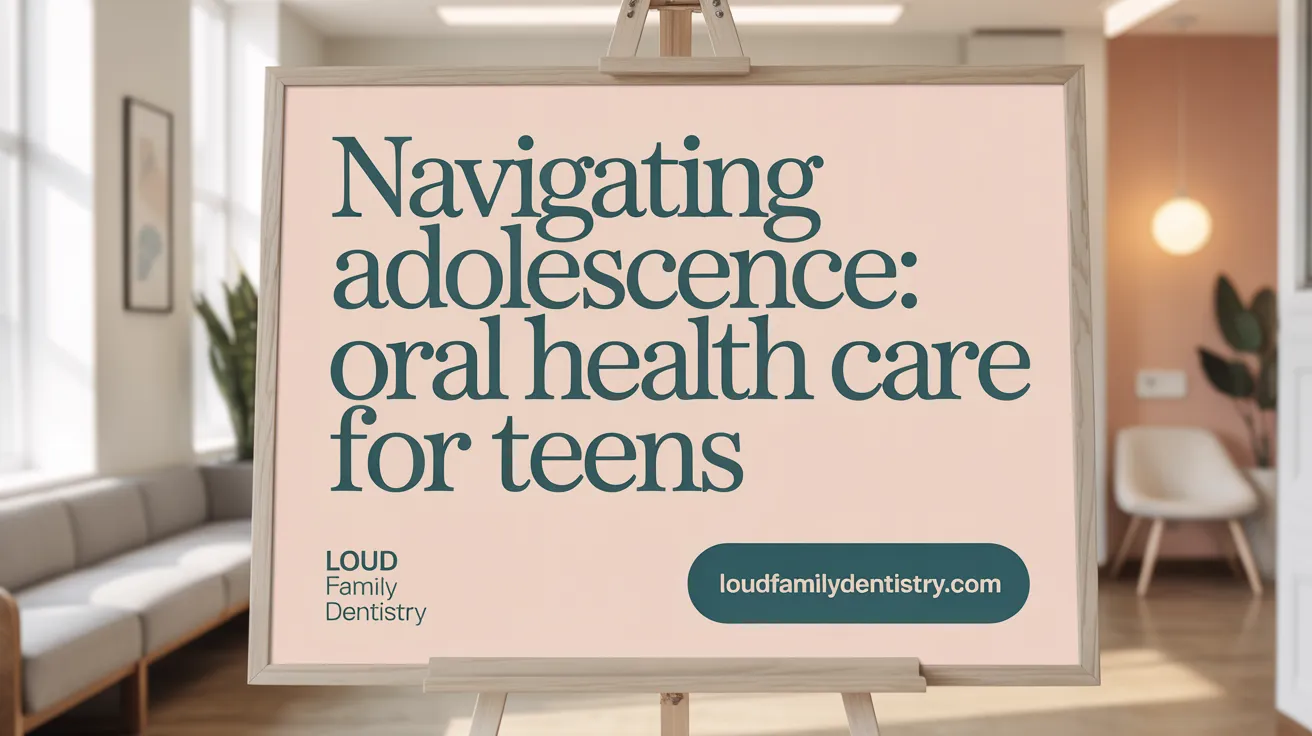
How do hormonal changes affect teen gum health?
During adolescence, hormonal fluctuations increase gum sensitivity and swelling, making teens more susceptible to gum inflammation. This heightened gum response calls for more attentive oral hygiene practices for teens to prevent issues such as gingivitis.
What are the key oral hygiene practices for teenagers?
Teens should brush their teeth twice daily using fluoride toothpaste, spending at least two minutes each session to ensure thorough plaque removal. Daily flossing is essential to clean between teeth where brushes can't reach. Additionally, antimicrobial mouthwash can be beneficial. Education and supervision help teens maintain these habits effectively.
What dietary recommendations help protect teen dental health?
Limiting sugary and acidic foods and beverages reduces the risk of cavity formation. Water or milk are preferable drink choices, while healthy snacks like fresh fruits, vegetables, nuts, and dairy contribute to stronger teeth and overall oral health. For more information, see nutrition and oral health.
What special dental care do teens receiving orthodontic treatment need?
Orthodontic patients should maintain rigorous brushing and flossing routines, paying special attention around braces or aligners to prevent plaque buildup. Following orthodontist instructions and attending regular check-ups ensure effective treatment. During sports, wearing mouthguards is crucial to prevent traumatic injuries.
What are the risks of tobacco, vaping, and oral piercings for teens?
Using tobacco or vaping products increases risks of gum disease, tooth decay, staining, mouth sores, oral cancers, and infections. Oral piercings may cause infections, gum recession, chipped teeth, and can complicate oral hygiene. Awareness and education on these risks support healthier choices. More details at risks of smoking and vaping for teens and dental risks of mouth piercings.
Sports safety and regular dental visits
Wearing a protective mouthguard during contact sports guards against dental trauma. Routine dental check-ups every six months allow early detection and management of cavities, gum issues, and orthodontic concerns, supporting optimal adolescent oral health.
Adult Dental Care: Maintaining Function and Aesthetics
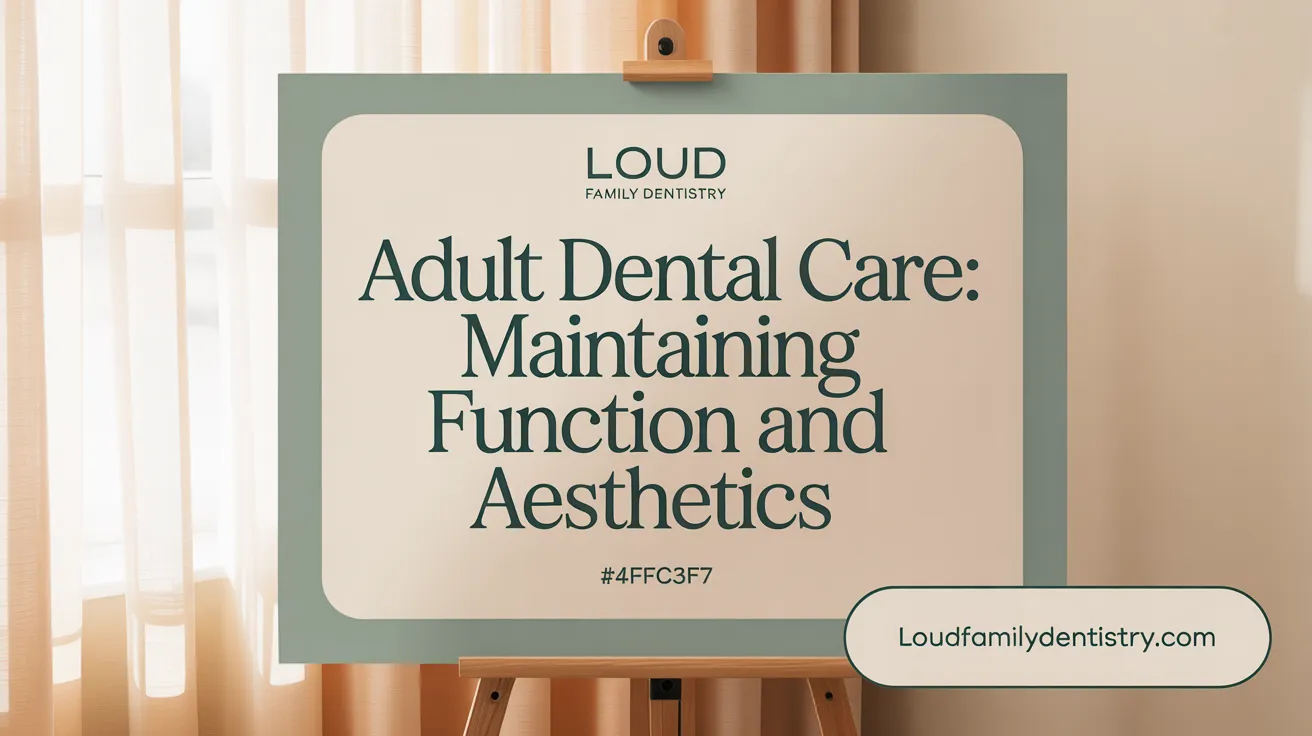
What daily oral hygiene routines should adults follow?
Adults should establish a daily oral care routine that includes brushing teeth twice a day with fluoride toothpaste to strengthen enamel and prevent decay. Flossing once daily is crucial to remove plaque and food particles from between teeth and under the gumline, areas a toothbrush cannot reach. Additionally, using an alcohol-free antibacterial mouthwash can help reduce bacterial buildup and freshen breath. Limiting added sugars in the diet also supports oral health by reducing cavity risk.
How can adults manage lifestyle-related dental risks?
Managing lifestyle habits plays a significant role in oral health. Tobacco use and excessive alcohol consumption are major risk factors that increase the chance of gum disease, oral cancer, tooth staining, and tooth loss. Adults are advised to avoid these products to maintain healthier teeth and gums. Furthermore, controlling chronic diseases such as diabetes through medical management improves gum health and reduces complications. Maintaining a balanced diet rich in nutrients and low in sugary foods further supports dental integrity.
Why are regular dental visits important for adults?
Regular dental checkups , typically on an annual or biannual basis, are essential for early detection and management of dental problems. These visits allow the dentist to identify cavities, gum disease, oral cancer, and other conditions before they progress. Professional cleanings remove tartar buildup that cannot be eliminated by brushing alone. Additionally, adults may seek cosmetic dental services such as whitening, veneers, or restorative treatments to maintain both function and aesthetics.
What special dental considerations apply to pregnant women?
Pregnant women require tailored dental care because hormonal changes increase vulnerability to cavities and gum disease, which can negatively affect both mother and baby. Maintaining good oral hygiene and attending routine dental visits during pregnancy are critical. Dentists may provide preventive treatments and guidance to minimize risks. It is safe and recommended for pregnant women to receive dental care during all trimesters.
How is oral health linked to overall health in adults?
Oral health has a profound connection to systemic health. Poor oral hygiene and gum disease have been linked to increased risk of heart disease, stroke, diabetes complications, and respiratory infections. The mouth can harbor bacteria that enter the bloodstream and trigger or exacerbate these conditions. Therefore, comprehensive dental care is a key component of promoting overall wellness and reducing broader health risks.
Common Adult Dental Issues and Their Management
Adults often face issues such as tooth sensitivity, cavities, gum inflammation, and cosmetic concerns. Addressing these problems requires consistent oral hygiene, timely dental interventions, lifestyle modifications, and sometimes advanced treatments. Preventive care helps mitigate the need for extensive restorative procedures. Staying vigilant about changes in oral health and consulting a dentist promptly ensure maintenance of both dental function and appearance.
Supporting Seniors: Adaptive Strategies for Oral Health in Older Adults
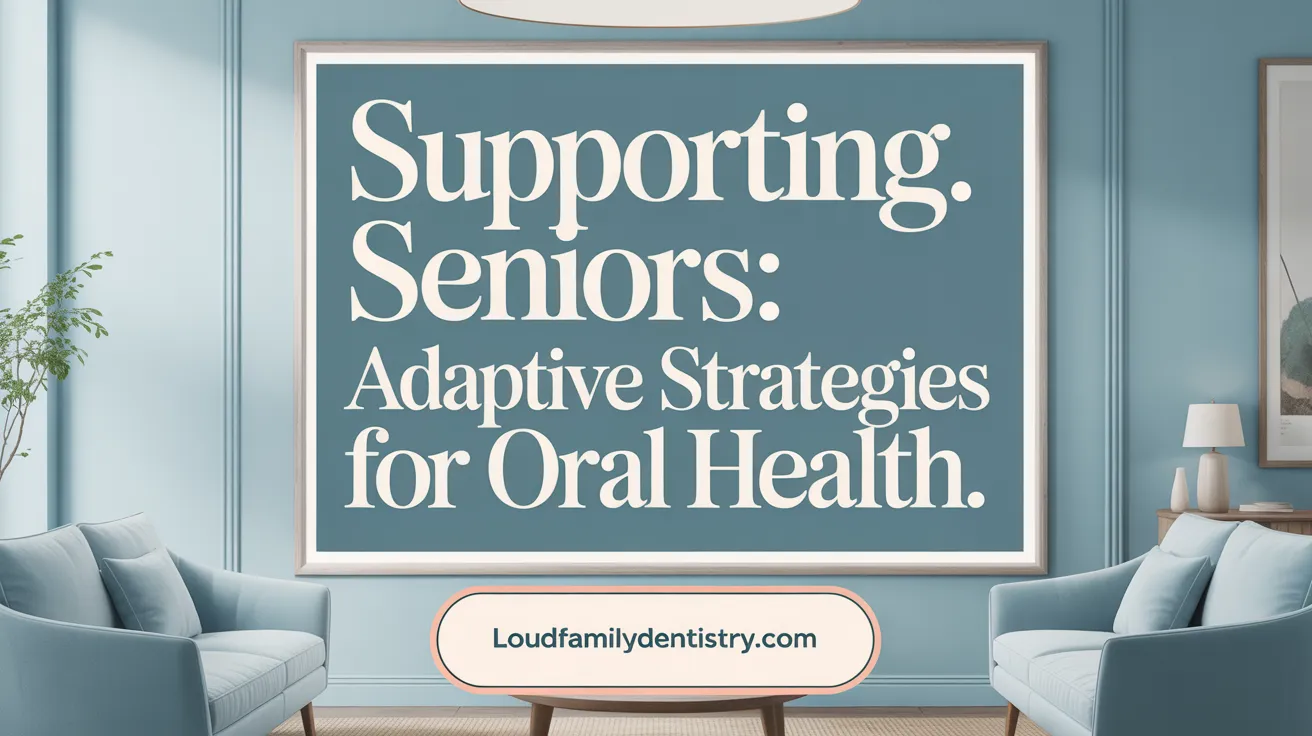
What common dental issues do seniors face?
Seniors commonly encounter several dental challenges, including tooth loss in seniors, gum disease, and dry mouth in elderly often caused by medications, heightened tooth sensitivity, and an increased risk of oral cancer risk and screenings. These conditions can affect nutrition, speech, and overall well-being.
How can dry mouth in older adults be managed?
Managing dry mouth in elderly (xerostomia) involves staying well-hydrated and avoiding substances like sugar and caffeine that can worsen symptoms. Saliva substitutes may provide relief, alongside maintaining diligent oral hygiene practices such as brushing and flossing to prevent decay.
What are best practices for denture and implant care?
Denture care includes daily cleaning, ensuring proper fit to avoid irritation, and removing dentures before sleeping to reduce infection risk. For implants, regular dental checkups allow early detection of problems and maintenance of oral health. See denture hygiene for older adults and dental implants for seniors.
How should dental care be adapted for seniors with physical or cognitive impairments?
Adaptations include using soft-bristled toothbrushes or electric toothbrushes with modified handles for easier grip. Caregiver assistance and simplified, clear instructions support effective daily care. Good lighting and direct, face-to-face communication help those with sensory impairments or cognitive challenges.
Why are regular oral cancer screenings important for seniors?
With advancing age, risk for oral cancer risk and screenings increases. Routine dental exams that include oral cancer screenings facilitate early detection of suspicious lesions or changes, enabling timely intervention and improving treatment outcomes.
Additional considerations
A balanced diet rich in calcium, vitamin D, and vitamin C, along with good hydration, supports strong teeth and gums. Together with tailored hygiene routines and regular dental visits, these strategies help seniors maintain oral health and quality of life.
Universal Preventive Dentistry Practices: Foundation for Lifelong Oral Health
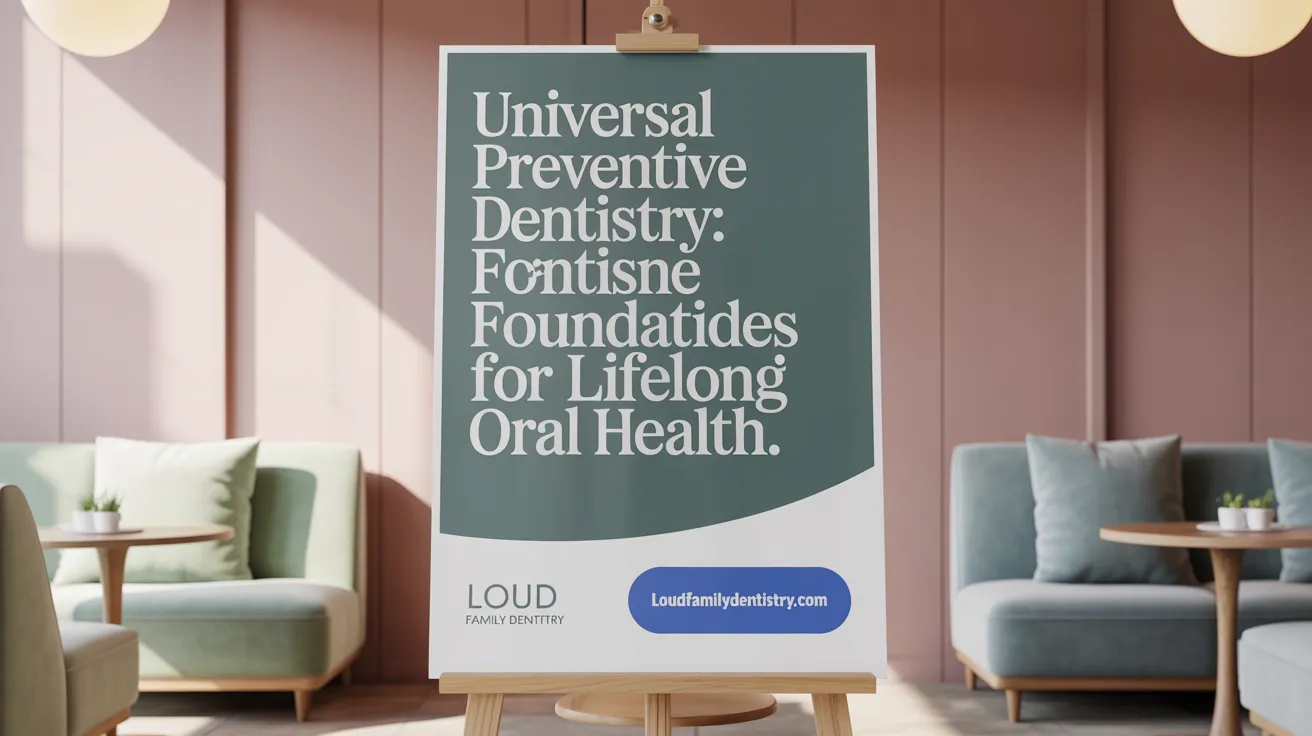
What are essential oral hygiene practices for all ages?
Good oral hygiene is crucial throughout life. Individuals should brush their teeth twice daily using fluoride toothpaste for at least two minutes to effectively remove plaque. Daily flossing is necessary to clean between teeth where brushes cannot reach. Cleaning the tongue helps remove bacteria that produce bad breath and contribute to plaque. Using mouthwash, preferably alcohol-free, can further reduce harmful bacteria. These combined practices support healthy gums and teeth across all ages.
How does fluoride contribute to dental prevention?
Fluoride plays a vital role in strengthening tooth enamel, making it more resistant to decay. It is effective when delivered through various sources such as fluoridated toothpaste, topical varnishes applied by dental professionals, and community water fluoridation. For children and adults alike, fluoride helps reduce the risk of cavities and slows down progression of early decay, contributing significantly to oral health maintenance.
What lifestyle factors influence oral health universally?
Diet and lifestyle habits profoundly impact dental health. Limiting the consumption of sugary and acidic foods and beverages reduces acid attacks on enamel, lowering cavity risk. Avoiding tobacco products stops staining, gum disease, and oral cancers. Moderate alcohol intake decreases oral irritation and cancer risks. Maintaining a balanced diet rich in calcium, vitamin D, and vitamin C supports strong teeth and healthy gums, essential across all life stages.
Why are regular professional dental visits important?
Routine dental evaluations every six months provide critical preventive care. Professional cleanings remove hardened plaque (tartar) that cannot be eliminated by brushing alone. Dentists detect early signs of cavities, gum disease, and oral cancer, enabling timely intervention. Preventive treatments like sealants and fluoride applications can be administered as needed. Moreover, dentists offer personalized oral hygiene guidance and monitor changes in oral health status.
How is oral health connected to overall systemic health?
Oral health reflects and influences general health. Untreated gum disease and oral infections can exacerbate cardiovascular disease, complicate diabetes management, contribute to respiratory infections, and are linked to cognitive decline including dementia. Maintaining oral hygiene reduces systemic inflammation and bacterial spread. Therefore, oral care is an integral component of comprehensive healthcare, highlighting the importance of preventive dentistry beyond just the teeth.
A Lifetime Commitment to Oral Health
Maintaining excellent oral health requires age-specific preventive strategies that evolve with each life stage. Starting dental care early in infancy sets the stage for healthy habits and development, while tailored guidance during adolescence supports the unique challenges of hormonal changes and orthodontic care. Adults benefit from consistent hygiene routines and managing lifestyle risks, including special considerations during pregnancy. For seniors, adaptive care addressing age-related issues preserves function and quality of life. Across all ages, regular professional dental visits combined with daily preventive practices and healthy lifestyle choices form the backbone of lifelong oral wellness, underscoring the invaluable role of prevention in avoiding disease, enhancing well-being, and enjoying confident smiles.
